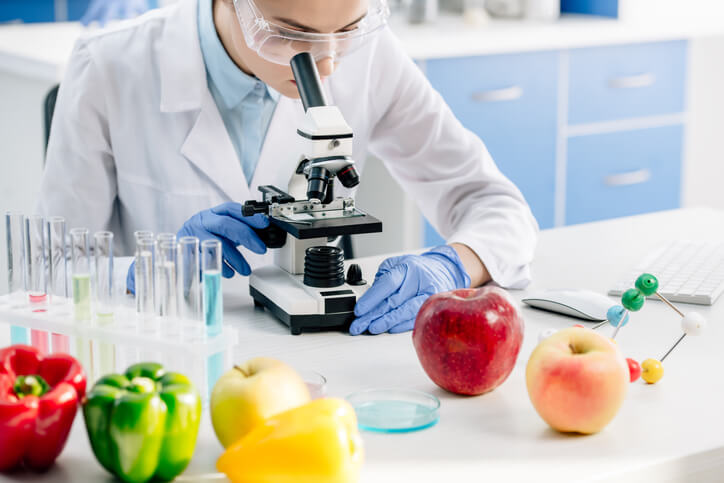According to the World Health Organization (WHO), an estimated 600 million – almost 1 in 10 people in the world – fall ill after eating contaminated food, and 420,000 die every year. Food safety and food safety training are of paramount importance globally, making the contributions of professionals in this field vital.
Among these professionals are microbiologist technicians, who ensure our food supply is safe, nutritious, and free from harmful microorganisms. These professionals work diligently in laboratories and on-site to analyze food samples, identify potential hazards, and contribute to the development of safer food production processes.
This blog explores microbiologist technicians’ vital responsibilities and the impact of food safety training on their work in the food industry.
Understanding the Role of a Microbiologist Technician
Microbiologist technicians are specialized laboratory professionals who study micro-organisms such as bacteria, viruses, fungi, and parasites that can affect food safety and quality. They are responsible for conducting tests and analyses to detect the presence of pathogens in food products, raw materials, and production environments.
Key Responsibilities
Sample Collection and Analysis: Microbiologist technicians collect samples from various sources, including raw ingredients, finished products, and environmental surfaces, to test for microbial contamination.
Laboratory Testing: To identify and quantify microorganisms, they perform various microbiological tests, such as culture methods, polymerase chain reaction (PCR), and enzyme-linked immunosorbent assays (ELISA).

Microbiologist technicians perform a variety of microbiological tests after food safety training.
Data Interpretation: Technicians analyze test results, interpret data, and prepare reports to communicate findings to food safety managers and other stakeholders.
Quality Control: They ensure that laboratory equipment is maintained and calibrated correctly, and they adhere to strict protocols to guarantee the accuracy and reliability of test results.
Compliance Monitoring: Microbiologist technicians help ensure food products comply with safety regulations and standards set by organizations such as Health Canada.
The Impact of Food Safety Training
Food safety training is a crucial component of a microbiologist technician’s career. This training equips them with the knowledge and skills to identify hazards, implement safety protocols, and maintain high food testing and analysis standards.
Enhanced Skills and Knowledge
Hazard Analysis and Critical Control Points (HACCP): Training in HACCP principles helps technicians identify critical points in the food production process where contamination could occur and develop strategies to control these risks.
Advanced Testing Techniques: Technicians are trained in the latest microbiological testing methods and technologies, allowing them to perform more accurate and efficient analyses.
Regulatory Compliance: Food safety training at AAPS ensures that technicians are familiar with the latest regulations and guidelines, enabling them to help their organizations maintain compliance and avoid costly penalties.

AAPS food safety training ensures technicians are up to date on the latest regulations.
Increased Efficiency and Safety
Improved Testing Protocols: Training enhances technicians’ ability to develop and implement effective testing protocols.
Risk Management: By understanding the principles of risk assessment, technicians can better anticipate and mitigate potential food safety issues.
The Importance of Microbiologist Technicians in the Food Industry
Protecting Public Health
Prevention of Foodborne Illnesses: By identifying and controlling microbial hazards, microbiologist technicians help prevent outbreaks of illnesses caused by pathogens such as Salmonella, E. coli, and Listeria.
Ensuring Nutritional Quality: Technicians monitor the nutritional content of food products, ensuring that they meet the required standards for a healthy diet, per their food safety course.

After their food safety course, technicians monitor the nutritional content of food products.
Supporting the Food Supply Chain
Quality Assurance: Microbiologist technicians contribute to the overall quality assurance processes within the food supply chain, ensuring that products meet safety and quality standards.
Innovation and Improvement: Through continuous monitoring and analysis, technicians provide valuable insights that drive innovation in food safety practices and technologies.
Are you interested in obtaining a food safety diploma?
Contact AAPS for more information.




